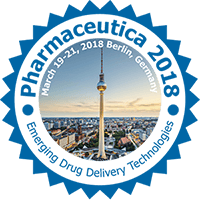
Kostas D Demadis
University of Crete, Greece
Title: Smart, programmable and responsive injectable hydrogels for controlled release of cargo osteoporosis drugs
Biography
Biography: Kostas D Demadis
Abstract
Gel systems have found extensive applications in the medicinal/pharmaceutical field because of their ease of preparation, ability for modifications and responsiveness to external chemical or physical stimuli. Gels usually act as hosts for active pharmaceutical agents for a variety of pathological conditions. Among the known bone diseases (osteoporosis, osteoarthritis, multiple myeloma, Paget’s disease and several others), the most challenging is osteoporosis, which burdens millions of people compromising patients’ quality of life. The recommended pharmaceutical treatment is the use of bis-phosphonates (BPs, a.k.a. “-dronates”). Their success in mitigating osteoporosis, notwithstanding these “-dronate” drugs present a number of challenges including fast excretion, and numerous side-effects, such as osteonecrosis of the jaw, hypocalcemia, esophageal cancer, ocular inflammation, atrial fibrillation, etc. Nevertheless, the main drawback of BPs is their limited oral bioavailability. It is, therefore, imperative to design and fabricate “smart” systems that allow controlled delivery of the active BP agent, which will depend on the patient’s needs and idiosyncrasies. In this presentation we discuss easy-to-prepare drug delivery systems, based on smart, silica gels. These have been synthesized, characterized, and studied as hosts in the controlled release of several bisphosphonate drugs. They exhibit variable release rates and final % release, depending on the nature of bisphosphonate (side-chain length, hydro-philicity/-phobicity, water-solubility), cations present, pH and temperature. These gels are robust, injectable, re-loadable and re-usable.

